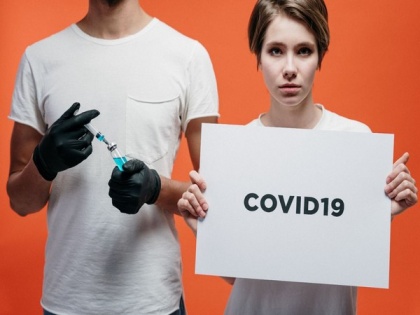Research: SARS-CoV-2 antigen levels linked to patient outcomes
By ANI | Published: August 30, 2022 07:06 PM2022-08-30T19:06:10+5:302022-08-30T19:15:02+5:30
According to a recent study published in the Annals of Internal Medicine, the amount of SARS-CoV-2 antigen detected in the blood of patients hospitalized with COVID-19 is related to the severity of the illness and other clinical outcomes.

Research: SARS-CoV-2 antigen levels linked to patient outcomes
According to a recent study published in the Annals of Internal Medicine, the amount of SARS-CoV-2 antigen detected in the blood of patients hospitalized with COVID-19 is related to the severity of the illness and other clinical outcomes.
Researchers from the National Institute of Allergy and Infectious Diseases (NIAID), a division of the National Institutes of Health, and their collaborators examined levels of SARS-COV-2 antigen in blood samples taken from study participants and evaluated the association of those levels with disease progression after the ACTIV-3 trial of COVID-19 therapeutics in people hospitalized with COVID-19.
More severe disease was correlated with higher viral antigen levels in the blood, which may signify ongoing SARS-CoV-2 replication. According to the authors, SARS-CoV-2 antigen levels show promise as a biomarker, or measurable element, to identify COVID-19 hospital patients who are more likely to experience negative outcomes.
People hospitalized with COVID-19 between August 2020 and November 2021 were enrolled in the ACTIV-3 trial. After providing a baseline blood sample, participants were randomly assigned to receive either a COVID-19 experimental therapeutic or a placebo. Absent medical reasons, all participants received the antiviral remdesivir. The researchers tested baseline blood samples from 2540 participants for SARS-CoV-2 antigen levels in this follow-up analysis.
On Day 5 of the trial, the researchers evaluated each participant's pulmonary symptoms to determine whether they had persisted, gotten worse, or improved since enrollment. They also evaluated the relationship between each participant's SARS-CoV-2 blood antigen levels and when they were discharged from the hospital. With all of this data available, the researchers ran statistical analyses to see if plasma antigen levels were related to the participants' pulmonary function at the time the blood sample was provided--and to see if they could forecast how the participants would fare over time. The researchers also looked at the association between the number of participants, viral, and antigen levels.
The analysis showed a significant correlation between worse pulmonary function at the time of enrollment and higher SARS-CoV-2 antigen levels (1000 nanograms per litre). Importantly, regardless of the severity of their illness at the time of study entry, participants with higher SARS-CoV-2 antigen levels in the blood at enrollment typically had decreased pulmonary function on Day 5 and required longer to be discharged from the hospital. Additionally, being a male and having high blood antigen levels were both associated with known risk factors for more severe illness.
Lower antigen levels were found to be associated with three additional participant traits, including the presence of SARS-CoV-2 antibodies, prior remdesivir exposure, and longer length of stay in the hospital. Participants who had the delta variant infection also had higher antigen levels than those who had the earlier circulating strains. The study's authors came to the conclusion that blood antigen levels are probably a sign of ongoing viral replication and may help predict a patient's disease course and likely outcomes after hospital admission. The findings, according to the authors, point to the potential benefit of using a precision medicine strategy in upcoming antiviral therapy clinical trials. Antigen levels, for instance, could be used to identify the patients most likely to benefit from treatments meant to combat the virus.
( With inputs from ANI )
Disclaimer: This post has been auto-published from an agency feed without any modifications to the text and has not been reviewed by an editor
Open in app